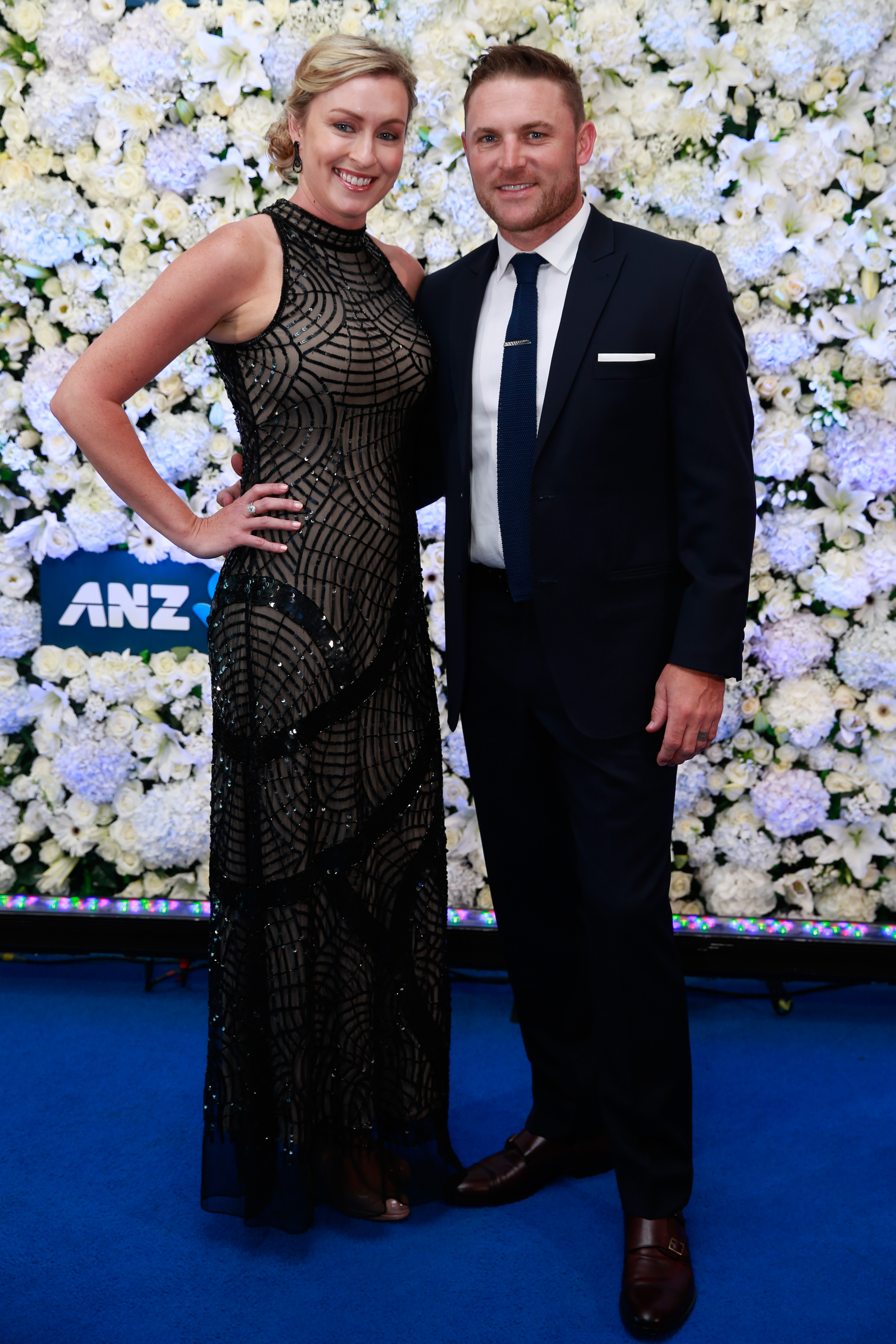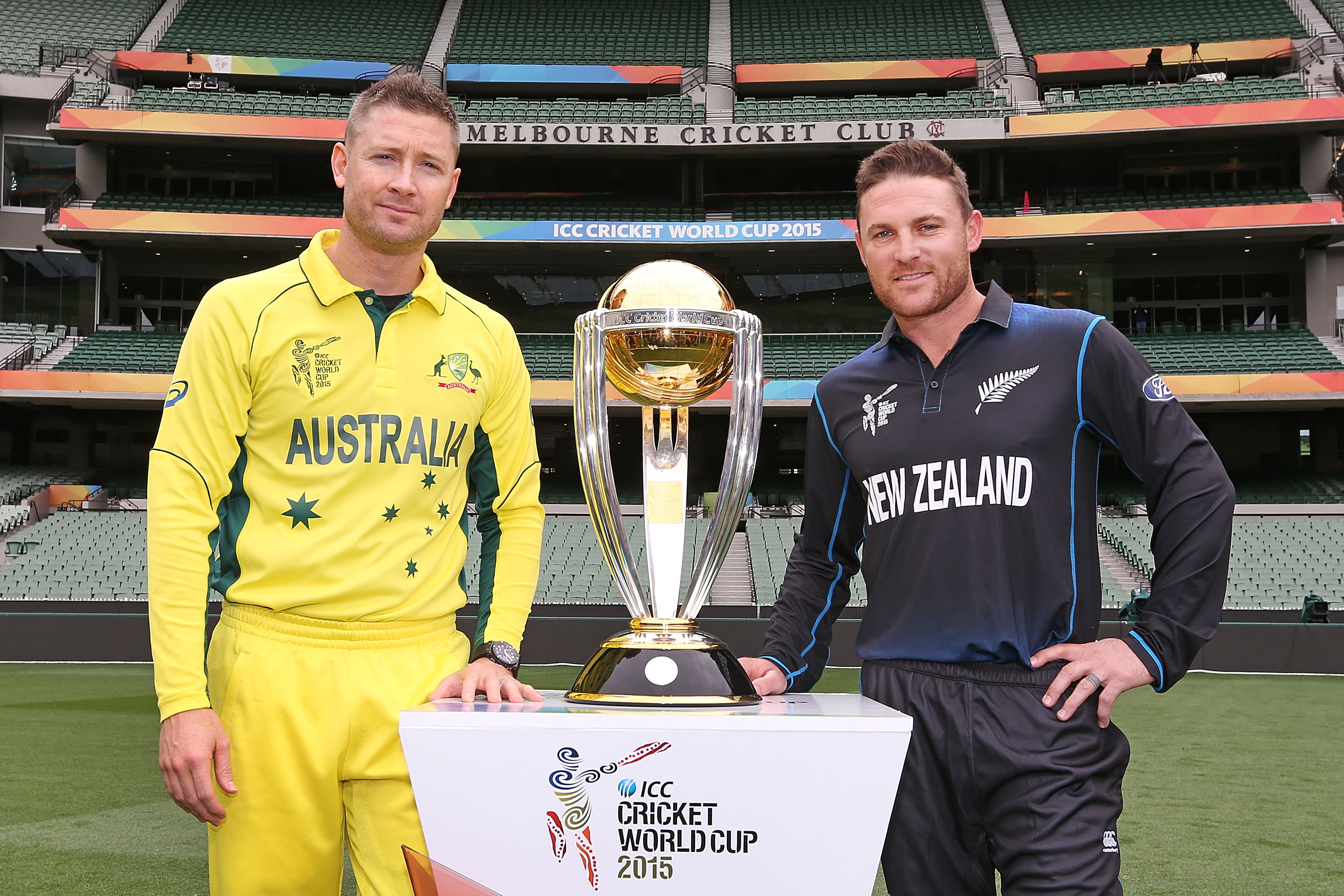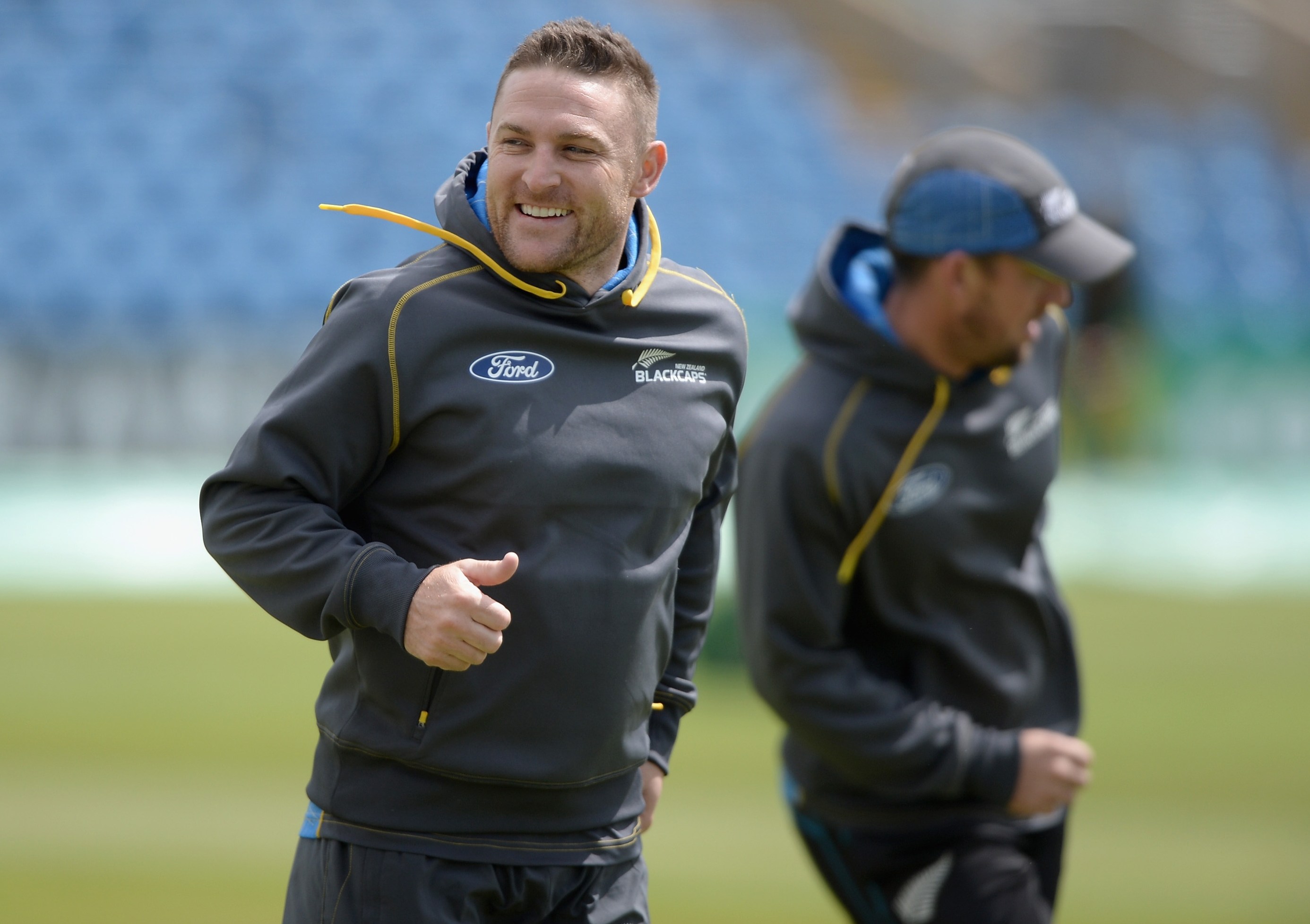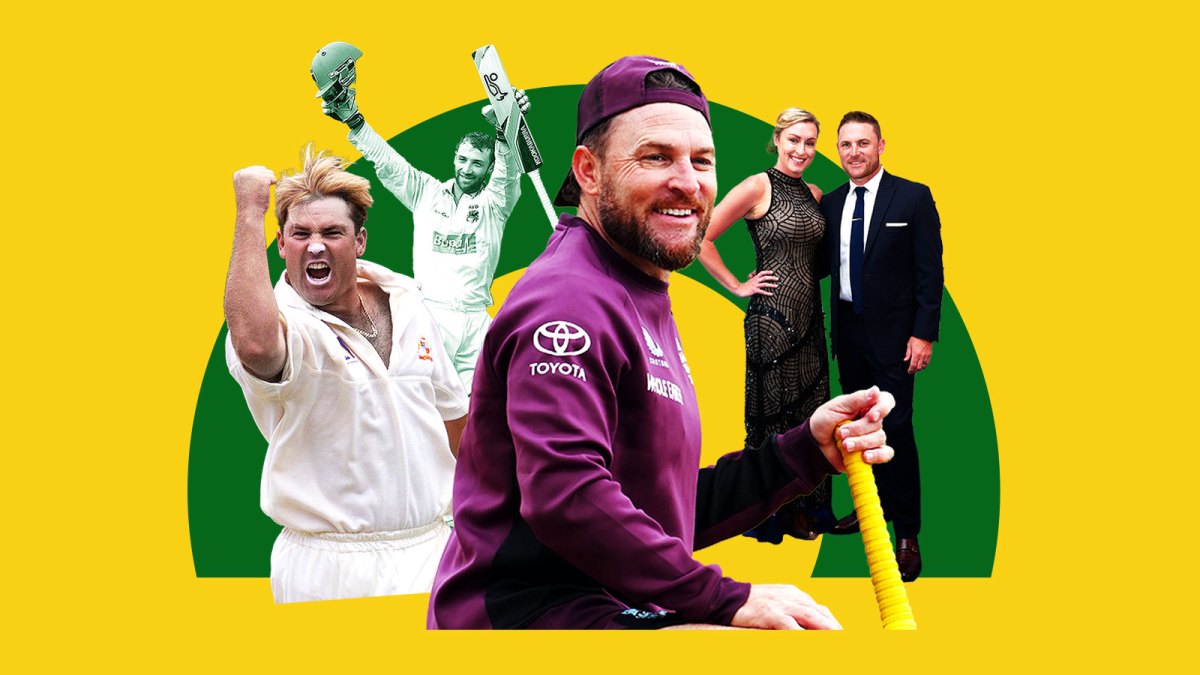It was in February 2002 in Sydney that a 20-year-old Brendon McCullum, having only made his international debut a couple of weeks earlier, was 12th man for New Zealand against South Africa in the second final of the tri-nations VB series that Australia had remarkably not reached. And as McCullum has since recounted in his autobiography, while running the drinks on and off he “couldn’t help noticing a certain blonde with a lovely smile sitting a couple of rows back”.
The blonde, Ellissa Arthur, would soon become Mrs McCullum and before that, a few months after they met, McCullum would return to Sydney to be with her and begin a journey of Australian influence upon his cricket that extends to this day in his role as the head coach of England. The Australians, as evidenced by the comical newspaper headlines that have been greeting England’s cricketers every day since arriving in Australia, love to hate “Bazball”, but the ironic truth is that it is mostly down to them that England now play that way.
In Sydney, McCullum played club cricket for Balmain while Steve Rixon, the former wicketkeeper who had previously coached New Zealand, was in charge of New South Wales (NSW) and almost daily would oversee specialist keeping sessions with McCullum and the NSW wicketkeeper Brad Haddin.

McCullum met his wife, Ellissa, in Sydney
PHIL WALTER/GETTY IMAGES
After those practices McCullum would hang around the NSW net sessions, where the likes of the Waugh brothers, Steve and Mark, Glenn McGrath, Brett Lee, Michael Slater and Stuart MacGill were strutting their stuff. And they were strutting, apparently. “These guys were the best of the best at the time and they knew it,” McCullum, now 44, wrote in his autobiography. “They had a bit of a swagger about them, an aura, a bit like the one around the All Blacks. I watched how they carried themselves, their confidence and arrogance, and thought that was the way to do it. From then on, for the next few years, I tried to carry myself like one of them, tried to play like an Australian.”
But, while McCullum learnt much about the skill levels and work ethic required, aping that more unedifying side of the Australian players led to trouble when in 2006 he ran out Muttiah Muralitharan, who was celebrating a century by his Sri Lanka colleague Kumar Sangakkara. It is an incident McCullum deeply regrets. “I wasted a few years trying to be brash and arrogant and hard-minded,” he has said, “It was a false attitude, not true to my character.” And it was one for which he apologised when giving the MCC Spirit of Cricket lecture at Lord’s in 2016. “If I could turn back time, I would,” he said. “We were within the laws of the game but not the spirit — and there is a very important difference, which is glaringly obvious to me years later.”
Which is what McCullum and the England team were getting at when Australia so controversially stumped Jonny Bairstow at Lord’s in 2023, prompting an enraged McCullum to say: “I can’t imagine we’ll be having a beer with them any time soon.”
So while McCullum’s relationship with Australia has been crucial to his development, it has not always been smooth. The late Andrew Symonds once called him “a lump of shit”, even if only in jest, after a row erupted when NSW recruited him for the final of the 2008-09 Big Bash, a storm that was easily quelled by McCullum donating his $6,000 match fee to help junior cricket back home in Otago.
Even Haddin, his erstwhile training partner, whose aggressive approach as “the ugly Australian on the field” was dismissed by McCullum in his autobiography as “all piss and wind”, had a pop when arriving in England for the 2015 Ashes. “We are not New Zealand, we won the World Cup final,” he said, pointedly.

McCullum was furious when Australia stumped Bairstow in 2023 after the England batsman wandered out of his crease believing the ball was dead
TIMES PHOTOGRAPHER MARC ASPLAND
New Zealand, who had lost that World Cup final months earlier in Melbourne (with captain McCullum crucially out in the first over), had toured England that summer and won hearts and minds with their chivalrous attitude. McCullum had become so popular he was engaged as an Ashes columnist by the Daily Mail, where he made his feelings clear on some of the Australians’ behaviour, calling out their captain, Steve Smith, for not recalling Ben Stokes when he was given out obstructing the field and David Warner for not applauding Joe Root’s century in Cardiff.
“In my opinion it was something that was quite poor and immature on his behalf,” Warner responded. “At the end of the day you’re not playing for the Spirit of Cricket Award are you?”
And Mitchell Johnson tweeted: “I find it strange when someone keeps telling the world how nice they are! You wouldn’t need to say anything if it’s true!”

McCullum’s New Zealand were beaten by Australia in the 2015 World Cup final
MICHAEL DODGE/GETTY IMAGES
Go back to November 2014, though, and it was another Australian who had a profound effect upon McCullum. He was captaining New Zealand in the third Test against Pakistan in Sharjah when news reached them on the second morning that Phil Hughes had died after being struck the previous day by a bouncer from Sean Abbott.
McCullum had opened the batting with Hughes in the 2009 Big Bash final and “got on really well” with him then and thereafter. He was “broken”, as were his team and their opponents. No one wanted to play and, understandably, they did not do so on the scheduled day two.

McCullum was profoundly affected by the death of Hughes in 2014
AAMIR QURESHI/AFP/GETTY IMAGES
At a loss what to do, McCullum phoned Gilbert Enoka, the former All Blacks mental skills coach who worked with McCullum’s England Test team last summer and will do so again for the first Ashes Test. Enoka offered the advice that “all your preparation, all you have ever thought about in cricket, just throw it out the window for this game”.
So when play did restart, that is what they did, with McCullum stressing that “there won’t be any harsh judgment on any player’s performance and there’ll be no consequences for failure”. New Zealand won the Test by an innings and 80 runs to level the series, with McCullum making a double-century. The spirit of Bazball was born.
By the 2015 World Cup, in which New Zealand beat Australia in a pool game before losing the final, the former Australia spinner Ashley Mallett was waxing lyrical about McCullum and New Zealand on ESPN Cricinfo. “Australians don’t always doff their hat to Kiwi cricketers — the Trans-Tasman rivalry has endured since Don Bradman was a boy. Perhaps it is simply big brother knowing by sheer weight of numbers they should always beat New Zealand at anything, anywhere, at any time. But what Australians do know, and don’t always tell their cross-sea cousins, is that we have always admired the Kiwi spirit, and the way New Zealand always punch above their weight.
“McCullum has brought great belief to New Zealand. He leads from the front, but as a captain, and we’ve seen it in spades this World Cup. He is like the great Australian captains such as Ian Chappell, Mark Taylor and Michael Clarke: he tries to make things happen.”

Australia were impressed by McCullum’s leadership style as a player
GARETH COPLEY/GETTY IMAGES
The truth was actually that McCullum was, and still is, finding his greatest inspiration from the greatest captain Australia never had — Shane Warne. Remember that famous Big Bash match in 2011 between Melbourne Stars and Brisbane Heat when Warne told TV viewers how he was going to get McCullum out before he did?
“He might try to shape to sweep after that first one or maybe go inside out again a bit harder, so I’m gonna try to slide one in there, fast,” Warne said. McCullum duly attempted a sweep and was bowled.
“He’s the oracle, isn’t he? He’s a genius,” McCullum said afterwards. “I was trying to pay respect by looking to play a fine lap shot to him to get off strike then try to attack the other guys. But he was just too good.”
Rob Key, England’s managing director, has often said that getting to know Warne around the poker table during rain breaks in Kent v Hampshire matches shaped his whole thinking on the game, while England captain Stokes worked with Warne at Rajasthan Royals. As for McCullum, he has said: “Sometimes in the job that we’re in with England at the moment, and the way we’re trying to play, it’s everything that Shane Warne would have wanted the game to have been done. Sometimes we’re midway through a game, we don’t know whether to stick or twist and you know you’ve got messages to deliver to the team. I often think, ‘what would Warnie do?’ ”
McCullum ended both his Test and ODI careers in 2016 with guards of honour from the Australians, a sure sign that he had truly earned Australian respect, and he certainly went out in style in the Test match at Christchurch, scything his way to what is still the fastest century in Test cricket (54 balls). Sadly, it could not bring a Kiwi victory, though, and McCullum finished his Test career with only one win in 16 attempts against the Australians.
We know very well that England last won a Test in Australia in 2011, but that was also the last time New Zealand beat Australia in Tests anywhere, with McCullum opening the batting with moderate success (scoring 16 &12) in the seven-run victory on a New Zealand-style green one at Hobart. McCullum averaged only 24.31 in his nine Tests in Australia, a figure that rose to 34.23 at home in seven matches. He averaged only 28.76 in ODIs against them, with New Zealand winning only 14 of the 47 matches in which he played.
So McCullum knows all too well how tough this Ashes series is about to be. Indeed, New Zealand have won only eight of the 62 Tests they have played against Australia. As Haddin wrote for ESPN Cricinfo when lauding McCullum’s retirement in 2016: “For all their achievements, I still believe a mental hurdle does exist for New Zealand when it comes to facing Australia, particularly in Test matches. We have always viewed the Ashes as our No1 goal, and often that has added to the pressure of a series. For the Black Caps, their equivalent is to face Australia, and they would love nothing more than to come out on top.
“As a result, there’s a lot of pressure both externally and internally to beat Australia. I know from personal experience that we faced numerous New Zealand teams in the past that, deep down, were not sure if they believed they could beat us. Under Brendon, belief has grown enormously within New Zealand cricket, but those little demons of self-doubt will still be there in some form.”
They will be there for England too this winter, because they have not won in 15 Tests in Australia since 2011. Can McCullum make them believe? He knows the country and its cricketers well enough, for sure.

